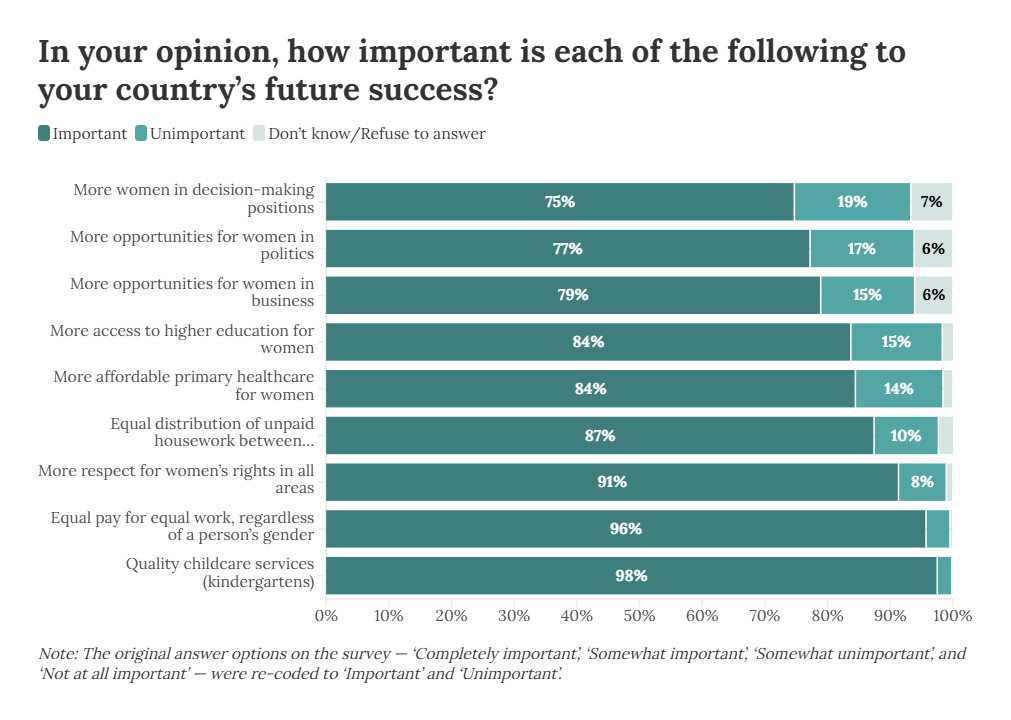Note: This article first appeared on the Caucasus Data Blog, a joint effort of CRRC-Georgia and OC Media. This article was written by Nino Lobzhanidze, a Junior Researcher at CRRC Georgia. The views presented in this article are the author’s alone and do not necessarily reflect the views of CRRC Georgia, UN Women, or any related entity.
A recent UN Women and CRRC Georgia study has found that the vast majority of Georgians find it important to work towards a more equal society.
The survey focused on a wide range of issues related to gender equality in Georgia, from the need for quality childcare services to women’s representation in politics and business.
According to the data collected, between 79%–98% of respondents believed that improvements in social and police rights, more equal sharing of domestic work, and a greater representation of women in leadership positions were important for Georgia’s future.
Looking at the role of women in leadership positions specifically, 79% believed that more opportunities for women in business was important; 77% believed the same for women in politics; and 75% believed it was important for women to have more opportunities in decision-making roles writ large.
The survey also assessed attitudes toward fundamental rights and social policies. A large majority (83%) considered improved access to higher education for women important. A similarly large majority (84%) supported affordable healthcare for women. The idea that respect for women’s rights in all areas is essential for the country’s success had 91% agreement.
Attitudes toward the workplace and family equality were also assessed. When addressing workplace equality, 96% of respondents supported equal pay for equal work, regardless of gender. A large majority (87%) also agreed on the importance of an ‘equal distribution of unpaid housework between spouses or partners’.

Overall, 65% of the public agreed with all nine of the above statements. A regression analysis suggests that gender was the only statistically significant predictor of whether a person agreed with all of the statements or not, with 73% of women agreeing with all nine statements compared to 56% of men, controlling for other factors. The data showed no significant differences on this account when it came to age, ethnicity, settlement type, education level, or employment status.
It is clear that a large majority of the public agrees that improving women’s rights is important for the country’s future, including the importance of equal pay and the fair distribution of household labour. Perhaps unsurprisingly, women were more likely to support all of these things than men, but still, a clear majority of both men and women believe these issues are important to Georgia’s future.
The regression analysis used in this article included the following variables: age (16–24, 25–34, 35–44, 45–54, 55+); sex (male or female); settlement type (Tbilisi, other urban, rural); education level (secondary or lower; vocational; and completed or uncompleted higher education); ethnicity (ethnic Georgian or ethnic minority); and employment status (employed or not working).








